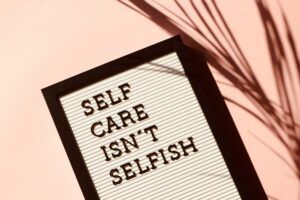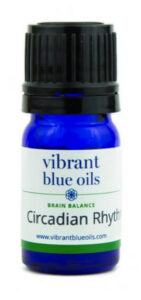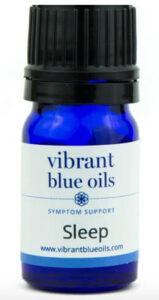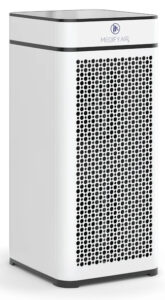10 Key Elements of a Healthy Lifestyle
Our lifestyle has a big influence on our health and wellness. These are the elements that go into making up your particular way of life.
influence on our health and wellness. These are the elements that go into making up your particular way of life.
This is one of the most important areas to address when building a happy and healthy life.
Here, we will explore the 10 key elements of a healthy lifestyle and the primary components of each.
Some of the links in this article are affiliate links. This means that if you click the link and subsequently make a purchase on the merchant’s website, we may earn a small commission at absolutely no additional cost to you. All opinions are entirely my own. I have used all products mentioned personally for years.
In no particular order, as each element is of equal importance:
1. Self-Care
In order to nurture yourself and create a positive and healing inner environment, you must prioritize yourself in all areas of your life. We aren’t able to truly give to others unless we first give to ourselves.
There is a rather detrimental societal construct that glorifies “selflessness” as a virtue to be attained at all costs so as to be seen in a noble light. While being generous and considerate of others is of course a necessity of living a positive, balanced life, we must also recognize that the self must be nurtured first.
Self-care is also not selfish, it is vital to our well-being.
If we are continuously putting others before ourselves, we become depleted, exhausted, and feel (consciously or subconsciously) a sense of neglect or abandon.
Caring for yourself can mean different things for different people depending on your particular preferences. For example, self-care can involve prioritizing “you time” and taking a bath most nights of the week.
This could also involve making sure you take your daily run around your neighborhood, because it is something you personally enjoy and something you know is good for you.
This could mean scheduling a massage every so often, or treating yourself to something you’ve had your eye on recently.
Self-care also means making sure that your needs are met on a daily basis, at home and at work. Get in the habit of considering your needs and prioritizing them as part of your day. You can establish a sense of balance between first, meeting your needs, and then putting forth the energy to care for those around you.
If you meet your needs first, you will have much more energy to give to others because you aren’t coming from an already depleted and exhausted place.
Treat yourself like you would treat someone you love and respect and prioritize yourself in all areas of your life.
2. Low Stress Levels
As has been recognized within both the natural and allopathic medical communities, stress has a considerably detrimental impact on our health, in many ways.
Maintaining a regular state of stress and a continuously elevated level of stress hormones such as cortisol and epinephrine leads the body to a depleted and burned out state rather quickly.
Adrenal insufficiency can set in, as the adrenal glands are no longer able to produce adequate levels of hormones, leading to a plethora of symptoms such as chronic fatigue, brain fog, weight gain, digestive impairment, and much more.
High and sustained levels of stress also greatly impact the gut and digestion, immune system, mineral balance, neurological function, endocrine system (including the thyroid, adrenal glands, sex hormones, and more), blood sugar balance, cardiovascular function, respiratory function, central, peripheral, and enteric nervous system function, and more.
It can be challenging to achieve and maintain a low state of stress when we live in a world that is basically programmed to a high state of stress. It is a go go go world.
world.
That said, it is extremely important to be able to autonomously center yourself and realize that your state of being need not depend on the outside world – that you are in control of you.
Some tools to reach and maintain a more relaxed, centered state of being are meditation, yoga, exercise, listening to music, writing and journaling, self-care, prioritizing fun and playfulness, spending time in nature, spending time with the people you love and whom elevate your state of being, engaging in your hobbies, and more.
Starting therapy is also HUGE to help you organize your thoughts, process your feelings and traumas, and help you get to know yourself better. This all of course helps you to lower your stress levels and occupy a more relaxed, centered state of being on a regular basis.
I personally believe everyone on earth could benefit from being in therapy. There is absolutely nothing wrong with seeking this form of support, in fact, it is such a brilliant step in the right direction of you taking charge of your health and can help you in so many wonderful ways.
Neural retraining is also a brilliant way of removing oneself from the chronic “fight or flight” state and rewiring the brain so that it can return to a balanced and peaceful state. This henceforth bestows endless health benefits, and helps to permanently alleviate the physical symptoms that had developed as a result of being in the chronic stress state.
Much more on neuroplasticity and neural retraining can be found here.
Some stress in life is basically inevitable, but it is possible to manage stress so that it is not negatively impacting your health. This is a very large part of adopting a healthy and healing lifestyle.
3. Adequate Sleep and Balanced Sleep Patterns
Making sure you are obtaining around 7 to 8 hours of sleep per night is important. This of course varies depending on fluid circumstances throughout your life, but as a general rule, 7 to 8 hours is ideal.
You may feel as though you personally need up to 9 hours, which is perfectly fine as well. Feeling as though you need more than 9 to 10 hours to feel rested however, is a signal that there may be an underlying imbalance present.
Getting enough sleep is pivotal to your neurological, endocrine, immune, gut, cardiovascular health and more. Sleep plays a big role in maintaining the overall balanced functioning of your body and when too little sleep is obtained, your body’s organs and systems begin to struggle.
Your circadian rhythm is the 24 hour cycle that is basically your body’s inner clock. It is the program that your body runs on to perform certain physiological tasks around certain times of the day. Your circadian rhythm includes your body’s sleep-wake cycle.
Maintaining a consistent sleep-wake circadian rhythm is very important for ensuring you receive optimal sleep and henceforth acquire all of the health benefits of doing so. Such things as using a bright screen late at night, frequently going to sleep or waking up at much different times, and consuming caffeine late in the day can all throw off your body’s rhythm which will then disrupt your body’s proper functioning.
Proper sleep also helps to lower stress levels and help you to remain more relaxed and centered throughout your day.
I have personally struggled with insomnia and sleep disruption for years, but I have found 2 things that have really helped with these symptoms.
helped with these symptoms.
Vibrant Blue Oils Circadian Rhythm oil has been a big help for me in regulating my sleep patterns.
It is a blend of balsam, lavender, melaleuca, myrtle, myrrh, rose geranium, and white grapefruit. The ingredients all have powerful calming and balancing properties.
This oil can help to support a balanced circadian rhythm and to promote sound and restful sleep.
To administer, I massage 2 to 3 drops behind my ears right before bed.
Click here to check out the Circadian Rhythm oil.
Another tool that I use to promote restful sleep and to help me be able to stay asleep is Vibrant Blue Oils Sleep oil.
This oil is a blend of blue tansy, citronella, roman chamomile, lavender, lime, orange, patchouli, spikenard, tangerine, and ylang ylang.
These ingredients have also have powerful  calming and balancing properties and can particularly help with staying asleep after falling asleep which is restorative and rejuvenating.
calming and balancing properties and can particularly help with staying asleep after falling asleep which is restorative and rejuvenating.
To administer, I massage 2 drops on my wrists, 1 drop on the back of my neck, and 2 drops on the bottoms of my feet.
Click here to check out the Sleep oil.
More about essential oils in general, and how they can be used for healing can be found here.
4. Healthy and Healing Diet/Eating Plan
As I often say, nutrition IS health. The food that you eat has everything to do with your health, as our body’s organs, interconnected systems, and overall physiology all rely on a plethora of vitamins, minerals, amino acids, and nutrients to function properly.
Many such nutrients are not endogenously made by our body so they must be obtained via a healthy and healing eating plan.
Developing a custom-tailored diet/eating plan that is specifically formulated for you and your bioindividuality is key. Work with your health practitioner to design your unique eating plan so that it adheres to your individual needs and supports your physiological state at that time.
Your dietary requirements will shift over time in accordance to your healing journey and shifting physiology.
While there is of course a wide array of variance according to each individual’s specific needs, as a general rule, a mostly organic, whole food diet that is rich in vegetables, proteins, antioxidants, and good quality fats and low in carbohydrates is optimal. Avoiding processed foods, sugar, and ingredients such as hydrogenated oils are all also key.
Gut health is also huge to consider when making dietary choices.
Making sweeping dietary shifts all at once can be challenging, so it can be helpful to make gradual shifts over time and soon enough, your healthy and healing eating plan will be second nature to you.
More on what a healthy diet entails can be found here.
5. Exercise
Exercise is of course an essential part of leading a healthy lifestyle. Exercise helps to improve circulation, improve sleep quality, reduce stress levels, improve cardiovascular function, improves cellular energy production, improve neurological function, and much much more.
Developing an exercise routine is helpful because we are more apt to continue with something if we establish it as part of our daily/weekly routine. Ideally, aiming for around 30 minutes of exercise every 5-6 days is wonderful.
There are all kinds of different forms of exercise that you can incorporate into your routines: yoga, pilates, strength training, aerobic exercise, running, jogging, walking, stretching, boxing, hiking, skiing, swimming, bike riding, skating, dance, rowing, and more.
Mix it up to keep things interesting.
Always do what you are capable of at that time, however, given your unique circumstances.
When severely chronically ill, it can be extremely difficult or simply impossible to exercise regularly. When this is the case, if you are able, you can utilize strategies such as stretching that can help achieve a certain degree of movement while you are currently not able to be more physically active.
As you begin to experience improvements in your mobility and capacity for physical activity as you heal, you can gradually adopt new practices such as taking a short walk outside every few days.
Over time, you can then continue to increase this activity as you feel able, and work up to a regular exercise routine.
Aside from an exercise/workout routine, being active whenever you see the opportunity is also encouraged as part of a healthy lifestyle. Park farther away in the parking lot and walk a bit longer to get to your destination. Take the stairs instead of the elevator. Take evening walks if possible.
All of those “little things” have positive impacts on your health that add up.
6. Positive Mindset + Positive Self-Talk
Mental health is oh so important for an endless array of reasons. Your thoughts, thinking patterns, and self-talk all have a tremendous impact on your health.
One of the ways our mindset can impact our health is by either perpetuating a state of stress of reducing our state of stress. If you begin to introduce more positive thoughts, thinking patterns, and self-talk, you begin to create and strengthen neural pathways that will keep you in the parasympathetic autonomic nervous system state.
In this relaxed state, you are much more capable of achieving optimal healing.
Our brains are plastic, meaning they can change. This is referred to as neuroplasticity. If you first, introduce the positive thoughts, thinking patterns, and self-talk, and second, repeat them often, your brain will begin to change to operate from this positive place by default.
It is also key to sit down and write out your beliefs about all areas of life. Bring them to the forefront so that you can assess which beliefs need to be shifted to be more positive and conducive to a healthy way of living.
Most of our beliefs are subconscious and were developed in childhood, so spending some time unearthing your personal beliefs is huge for improving your day-to-day thought patterns and the nature of your self-talk.
Open yourself to self-love (explained further here) and allow your thought patterns, mindset, and self-talk to reflect this sense of self-worth and love.
Talk to and treat yourself like you would treat someone you love, cherish, and respect.
Feel gratitude for everything that you have.
You are oh so worthy, exactly as you are right this second. You are brilliant. You are incredible. You are whole. You are so loved. You are ever-evolving and your future is so bright.
7. Healthy Relationships
The people in our life have an influence on us to varying degrees, so it is very important to make sure that those people have a positive influence.
The people in your life should be people who lift you up, nurture you, and ignite a sense of happiness and positivity within you. They should be balanced people who only want the best for you and who treat you with kindness and respect.
Only housing healthy relationships in your life is also a very big part of maintaining low stress levels. Toxic relationships that involve abuse cause many forms of trauma that are extremely detrimental to your mental, emotional, and physical health.
relationships that involve abuse cause many forms of trauma that are extremely detrimental to your mental, emotional, and physical health.
If you are currently involved in an abusive or toxic relationship of any kind, do know that you can get out. Seek out a therapist who is well versed in trauma and abuse. Begin to open yourself to exploring new pathways forward.
There is nothing that is more important than your health…
And there is absolutely never an excuse for abusive behavior of any kind, never. It is unacceptable and there is no room for it in your life. Regardless of who the person is to you, if they are abusive, they do not belong in your life.
Sometimes the decision to greatly distance yourself from someone or remove them from your life can be extremely challenging, involve summoning a lot of courage, and come with its own bag of stress, but it is a vital decision to make so as to take care of yourself and your health.
Prioritize your health in all areas, especially your relationships. You deserve the best. You deserve to be treated with only love and respect, and you deserve to have people in your life who value you, cherish you, and add to your life in positive, healthy ways.
8. Clean Air
Something that very often gets forgotten yet has an extremely important impact on our health is the quality of the air you are breathing on a daily basis.
Indoor air contaminants such as mold, chemicals from conventional cleaners, personal care products, allergens (dust, pollen, etc) and more are all very important elements to consider when ensuring that you are living in a “healthy home.”
Most conventional cleaners contain chemicals that are toxic to the body and irritate the lungs. There are a plethora of safe, natural, non-toxic cleaners today that achieve the same results as a conventional cleaner would yet do not have an adverse impact on your health. Replacing your conventional cleaners with more gentle natural cleaners is an excellent step in optimizing the quality of your indoor air.
Opening your windows for a little while during the day when possible is another way of improving your air quality. Of course, this is done if the outdoor air is fresh and not contaminated itself with smoke or any such other pollutant. Most homes are built to be very energy efficient which means they are also very air tight for the most part. Unless doors and/or windows are opened periodically, very little actual fresh air is circulating throughout the home.
are opened periodically, very little actual fresh air is circulating throughout the home.
Furthermore, ensuring that your home is mold-free is VERY IMPORTANT. Mold is very toxic to the human body and can cause a plethora of symptoms and conditions, one of which is Biotoxin Illness, a systemic inflammatory condition that develops from the inability to properly detoxify mycotoxins from mold.
The thing with mold is that the majority of the time, it is completely hidden from plain sight, so it very often goes completely undetected. Someone can be extremely ill and have no idea that the home they are living in is the cause of their illness because there are absolutely no obvious signs of there being any kind of problem.
This is why being aware of mold and having your home inspected by a reputable and trustworthy mold inspector regularly is of such importance. Mold is of course more common in bathrooms, kitchens, and laundry rooms…any space in the home that typically has the most moisture.
Mold thrives in dark, moist environments and can hide behind flooring, drywall, trim, baseboards, under vanities, cabinetry, in crawlspaces, attics, and much more.
Mold can develop from undetected leaks so it is important to check under your sinks all throughout your home and near your shower regularly for any signs of water damage.
Another very helpful way of optimizing the quality of your indoor air is using a good air purifier with a HEPA filter. HEPA stands for High Efficiency Particulate Air. A good quality HEPA filter can specifically remove almost 100% of airborne particles and allergens such as dust, pollen, mold spores, bacteria, viruses, pet dander, volatile organic compounds (VOCs), and more.
Using top quality HEPA air purifiers throughout your home is important for everyone, especially those who may have a history of Biotoxin Illness from mold exposure, those with allergies, and those with respiratory conditions.
Medify Air MA-40 HEPA air purifier is a top quality purifier that is highly effective for cleansing your living environment of airborne contaminants, pathogens, and toxins. 
The specialized filters in this purifier are capable of filtering airborne toxins and contaminants such as mold spores, dust, pollen, bacteria, smoke, pet dander, and more.
Unlike most other HEPA purifiers, Medify Air’s “true HEPA H13” and “true HEPA H14” filters can filter down to 0.1 microns, which means that the filter can capture a higher quantity of airborne contaminants and pathogens, up to 99.9% and 99.99%, respectively.
This purifier is equipped with a 3 stage filter system which includes a prefilter to catch larger particles, the HEPA filter in the middle, and an activated carbon filter which absorbs and eliminates odors.
Click here to check it out.
⭐️Use code MEGAN15 at checkout for $15 off of your order at Medify Air :)⭐️
9. Good Quality Water
Drinking enough water is certainly a key area of a healthy and healing eating plan and lifestyle, yet making sure that water is of good quality is also a key part of the equation.
Often, tap and/or well water can be contaminated with parasites, bacteria, pesticides, heavy metals, and more, so it isn’t the best choice to drink on its own, as it must be filtered and purified to remove these contaminants.
Common varieties of water include purified water, distilled water, and spring water.
water, distilled water, and spring water.
Distilled water has been boiled into vapor which removes all impurities. It has also had all minerals removed.
Purified water has been treated to remove most contaminants but this process also removes a great deal of the mineral content of the water as well.
Spring water is cleansed of contaminants but still contains a notable amount of minerals.
As a general rule, spring water is typically the “best” water to drink. We all have different needs depending on our bioindividuality and shifting physiology throughout healing, but for the most part, spring water provides a balanced array of minerals which is of high importance.
Purchasing your spring water in bulk in 5 gallon drums is one option, as well as purchasing smaller single gallon containers.
Using a top quality water filter system to purify your water is also a hugely impactful step in cleansing your water and ensuring that it is safe to consume. Click here to learn more about my top water filtration system recommendation.
10. Balanced Workload and Healthy Work Environment
There are of course endless possibilities for what each individual’s work or employment situation can look like.
Regardless of the specifics, it is important to balance your work life with the rest of your life’s obligations and avoid “overworking.” Pushing yourself too far can lead to burnout and certainly has a negative impact on your health overall.
Furthermore, being in a healthy and supportive work environment is also key. Since so much of our time is often spent at work or working, if this environment is toxic or unsupportive it can have powerful adverse effects on our well-being.
Being conscious of this environment and removing oneself from toxic situations is huge. Remain open to a wide variety of employment avenues. You are free to change career paths at any point in your life.
Know your worth and refuse to settle for anything that doesn’t provide a respectful, healthy environment for you to occupy.
In Closing…
We’ve explored all of the main components that go into creating a healthy and healing lifestyle.
It is more effective to make gradual shifts instead of sweeping immediate changes, so be tender with yourself as you move toward a more positive and healthy way of living.
Making these shifts has a profoundly powerful impact on our health overall, and collectively, can make all the difference in ensuring that our lives are as bright, happy, and fulfilling as they can be.

REFERENCES